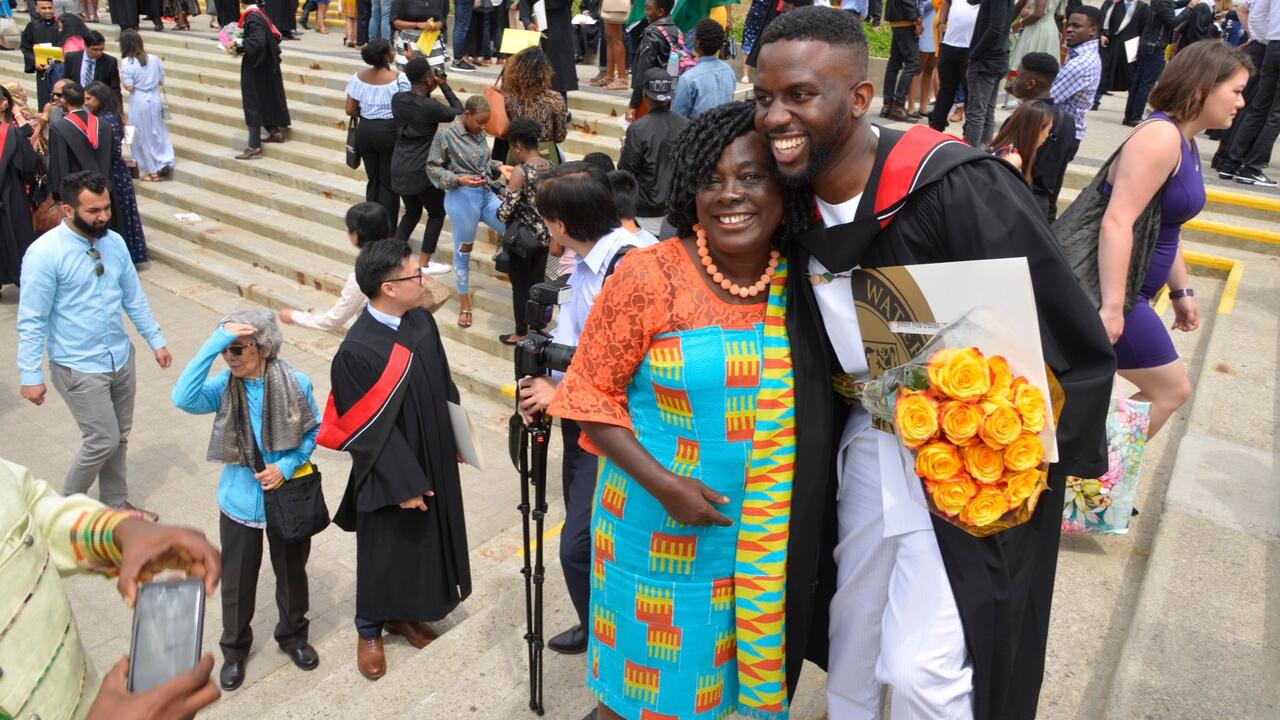
Letters to young engineers
Three distinguished alumni share advice, inspiration with the next generation of professionals

Three distinguished alumni share advice, inspiration with the next generation of professionals
By Faculty of EngineeringThree engineers with deep ties to Waterloo Engineering were among the contributors to the 2020 edition of Letters to a Young Engineer, an annual publication given to graduating engineering students.
Published by the University of Ontario Institute of Technology in Oshawa, the book features words of congratulations, inspiration and advice from Waterloo alumni Ralph Haas (PhD ’68, civil), Susan Tighe (MASc ’97, PhD ’00, civil) and Carl Turkstra (PhD ’63, civil).
Haas, who passed away in June at the age of 87, and Tighe, now provost and vice-president, academic, at McMaster University, also had distinguished careers as faculty members at Waterloo Engineering.
Their three letters appear below:
“A Fork in the Road” is the title I chose for this letter to a young Engineer. It is based in part on a Convocation Address I gave to Engineering graduates at The University of Alberta in June, 2018. My Alma Mater for a Bachelor’s Degree many years ago was the U of A and then I became a “new” graduate at U of A with a DSc (Hon) in 2018. My life as a young engineer was followed by six decades as an educator, researcher and practitioner. It has been one of good fortune and opportunity to observe and participate in an incredible amount of change in our profession, and indeed in our society. You will face even more changes in your career over the coming years.
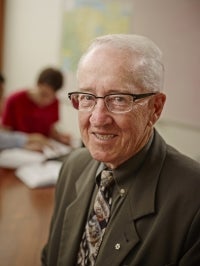
Ralph Haas
So why the title of A Fork in the Road? To start, Yogi Berra, the great baseball Hall of Famer, is reported to have said “when you come to a fork in the road take it”. Steve Jobs, Co-Founder of Apple, and Beverly McLachlin, Retired Chief Justice of the Supreme Court of Canada, effectively said the same, as I will point out.
As for Yogi Berra, some thought it was just a Yogi’ism, but he became a successful manager of The Yankees after his playing days; Steve Jobs was a genius in creating devices that people wanted, and Beverly McLachlin wrote seminal judgements for the Supreme Court. They all really talked about opportunity and decision time.
A personal example is my first job after high school, which was unloading box cars of farm and construction materials. One night, in the town pool hall, a buddy told me they had just fired a guy from the survey crew – the next day I had a new job. Now I understand what Steve Jobs meant in a commencement address at Stanford University when he said “Have the courage to follow your heart and intuition.”
Another personal fork in the road, 8 years later, was a decision to go to University. I well recall the opening welcome for frosh when the Associate Dean of Engineering, Professor Gads, warned that only one out of every three of us would eventually graduate – that scared the heck out of me, but I did make it and with the encouragement of Dean Govier went on to do graduate work.
Then came a fork in the road which changed my life and career. It started with a Sunday morning call from Dr. John Ruptash, Dean of Engineering at Carleton University in Ottawa – who said I hear you are looking for a job and I am offering you one – I asked if I could think it over, and he replied sure, call me back tomorrow morning.
A month later my wife and I with two small kids pointed our 11-year-old Chevy east, and headed for Ottawa – that could not have been a better decision, and Dr. Ruptash, who I found later had actually been a gold medalist in Engineering at Alberta, was a superb mentor.
After three years in Ottawa I joined the University of Waterloo, did my PhD and embarked on another stage of being a teacher, researcher and practitioner over the next decades. Those years involved a great array of activities, initiatives and very importantly many many undergraduate and graduate students who can justifiably take pride in their achievements; me too! As I write this letter after more than two decades of supposedly being retired, I continue to do research, supervise students and stay involved with the Transportation Association of Canada, The US Transportation Board, The Royal Society of Canada, and others. In fact, I was the founding Director of The Center for Pavement and Transportation Technology.
Another personal fork in the road was whether I could contribute something meaningful to the University of Alberta in recognition of my own positive experience as a student and in subsequent years as an alumnus. The initiative undertaken was a partnership between myself and Stantec to create an endowment in support of an early-in-career professor. It epitomizes in many ways Chief Justice Beverly McLachlin saying “There’s always another page to turn, and you turn it.”
Now, do my personal examples mean that I always made the right decision – not at all. I recall in that sense, one of the longest serving Deans of Engineering in Alberta, Dr. R.M. Hardy, a prominent geotechnical expert, who was reputed to have made many mistakes – but not the same one twice. You too will come to many forks in the road. You will make mistakes, but hopefully also not repeat them.
I would like to finish with a personal perspective that if one has any kind of a legacy it should be based on being, above all, a decent person. All the better if you add generosity, integrity, courtesy and contributions to your community, society and your profession. I hope this will be an integral part of your future, as proud alumni of this great University.
Ralph Carl George Haas
Ralph Haas was the Norman W. McLeod Engineering Professor and Distinguished Professor Emeritus at the University of Waterloo, and past chair of The Department of Civil and Environmental Engineering.
A Member of the Order of Canada, Dr. Haas was also a Fellow of the Royal Society of Canada, the Canadian Academy of Engineering, the Engineering Institute of Canada, the American Society of Civil Engineers and the Canadian Society of Civil Engineering. In 2002 he received the Queen’s Golden Jubilee Medal and in 2012 the Queen’s Diamond Jubilee Medal. The University of Waterloo officially named “The Ralph Haas Infrastructure and Sensing Analysis Laboratory” in his honour in 2014.
***
Diverse Teams Lead to Great Solutions
Congratulations! You have completed an undergraduate engineering degree which is no easy task. The problem solving skills you have learned will help you navigate your professional and personal lives.
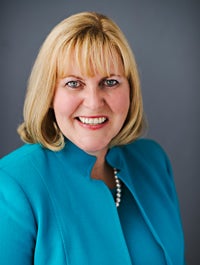
Susan Tighe
When I first graduated I was immediately thrust into the exciting and fast moving world of construction. Although I was a graduate engineer, it was clear to me that I had a lot to learn. So, I worked hard to learn as much as I could from others, I tried to share my knowledge with others (although I felt what I had to share was limited) and every day I went to work with a positive attitude. I knew I had to work hard to learn the business and I also needed to work as part of a team. Initially I was struck at how diverse our team was. On the surface we had little in common, yet when we all put our heads together we accomplished great things. We had diverse backgrounds, perspectives and experience. As time went on, I realized this team of diverse individuals was strong and effective as there was a genuine respect for each team member and brainstorming solutions was challenging but rewarding. I also saw first hand that by having a diverse and inclusive environment, great things could be achieved. Each person brought a truly different perspective to the problem at hand. This helped develop effective and efficient solutions to handle technically complex problems. Each person was free to provide a proposed solution and every idea regardless of what it was, was valued. So I encourage you to work with others who are different, be a team player and build a culture of respect where all are welcome to freely participate in the discussion. This will from time to time pose challenges but it creates the type of environment that fosters innovation and creativity. In the engineering world it is necessary to listen so that you can understand the problem or situation. There are many ways you can listen, whether it is through traditional communication routes or whether it is being observant to your surroundings. It is necessary to think about how things are currently working. Can they be better? Is there something that can be done that dramatically improves the process/service/product? What should we stop doing? Can something completely different be done here? In essence, it is important to be a thinker and see both the small and big picture. It is a balance of understanding the details of the situation at hand, but also imperative to see how the work you are doing can advance strategic goals or the bigger picture. Think about how your work has impact. Use good quality data and effectively use whatever tools you have available to develop a solution. Do not be afraid to test new ideas. With rapid advances in the access to information, do your best to stay current and be technically sound. Know how your work impacts quality of life and the environment. Continue to be involved with your profession and community as these interactions will ensure you remain relevant.
Another important lesson related to listening involves mentorship. To be a good mentee you need to be open minded to feedback. To be a good mentor, you need to listen and provide feedback that is helpful. Participating in mentor/mentee relationships throughout your career, can be very rewarding, helpful and a great way to learn. Mentors can provide valuable guidance and can be an excellent sounding board. They can provide a much needed reality check to provide perspective and the unbiased advice can help you navigate situations. This is particularly important as you move into different roles and grow as a professional. As a mentor you can also learn from your mentees in a way that is insightful and refreshing. Mentees provide perspective on how your organization is working or how people perceive decision making processes and management. In effect, both the mentee and mentor can learn from each other. But perhaps the most impactful thing I have learned related to mentoring is, “if someone gives you good advice, you should take it.” So be open to participating in mentoring relationships, either formally or informally as they can be very rewarding, relevant and insightful. They can also be an excellent mechanism to give back to the profession.
So as you embark on your career, do what you enjoy. Find something that you are passionate about as this passion will drive you forward. Engineering is truly a wonderful and rewarding profession. It is diverse, challenging, innovative and exciting. There are many exciting opportunities ahead so be open to seizing them. Anticipate challenges and be proactive. Use your education and experience to change the world. Be an excellent speaker and writer so you can share your lessons learned and dreams for the future.
Susan Tighe
Susan Tighe is a former Deputy Provost and Associate Vice-President at the University of Waterloo. She was also a Professor and the Norman W McLeod Chair in Sustainable Pavement Engineering in the Department of Civil and Environmental Engineering.
***
Congratulations. You are about to enter a wonderful career as a graduate engineer. I have been an engineer for over 50 years and I can safely say I have never regretted my choice of a career.
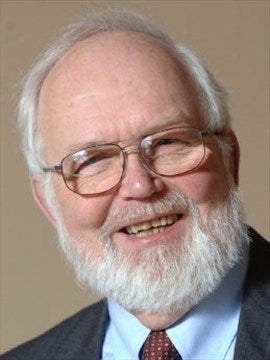
Carl Turkstra
I have had an unusual history. I studied and taught in six universities including many years as a McGill Professor, stints at American universities and graduate studies in business management. At the end of my career I ended up running a large corporation. As Sir William Dawson, the founding Principle of McGill said, “the success of a university is measured by the success of its graduates in later life.” I did a lot of research during my academic life, but my colleagues and I always remembered that we were professional engineers and our primary job was to maintain the profession and turn out competent, well educated professionals.
I am a structural engineer and I still find it fascinating. You can travel the world and be amazed at the incredible genius of people ranging from the ancient Egyptians, the far eastern temple builders to the Romans and modern bridge builders. Generations of engineers have upheld the ancient dictum “When we build let it be such that our children will hold it sacred that our hands have touched them.”
During your career you will find that your education has a profound effect on your life. You will probably find that you instinctively try to understand everything. Why do machines work? Why do people do what they do? Why does the climate change so dramatically?
You have been taught to be an analyst and you can not turn it off.
One of the best aspects of a career in engineering is the opportunity to take responsibility for decision making. Whether you are responsible for the design of sophisticated equipment or supervision of a major construction project the ability to say “I did it” is a wonderful thing to be able to say. In Europe the highest praise you can give a project is to call it “state of the art.” Not science, but art!
In the process of building your career you will learn many things. In particular, there is often more than one good way to get things done. Managing conflicting opinions will be one of your major challenges. You will find that verbal and political skills are often as important as technical knowledge.
Perhaps best of all you will be able to make a good income in a responsible job.
Carl Turkstra
Carl Turkstra is a structural engineering educator and consultant. He is a licensed engineer in Ontario and Quebec. Carl holds a BSc (1958) from Queens University, MSc (1960) from the University of Illinois, and a PhD (1963) from the University of Waterloo, in addition to diplomas from Université de Montreal (1979), and McGill University (1980). His academic career started as a Lecturer at University College at London University (1963-1965), and came back to Canada as an Assistant Professor (1965-1971), Associate Professor (1978-1982), and Professor (1978-1982) at McGill University. He then moved on to become a Professor of Structural Engineering at Polytechnic Institute of New York in Brooklyn in 1982, in which he was also the head of the Department of Civil and Environmental Engineering 1982-1985. Among the leadership positions he held, Carl was the President of Montreal Structural Engineers, Chairman of the Canada Masonry Research Council, fellow of the Canadian Society of Civil Engineers and its Chairman in 1978-1979 (Montreal Section), and the American Society of Civil Engineers winning the State of the Art award in 1988. He currently lives in Dundas, Ontario.

Read more
Redefining capstone learning by bringing students, faculty and community partners together to tackle real-world challenges

Read more
Here are the people and events behind some of this year’s most compelling Waterloo stories
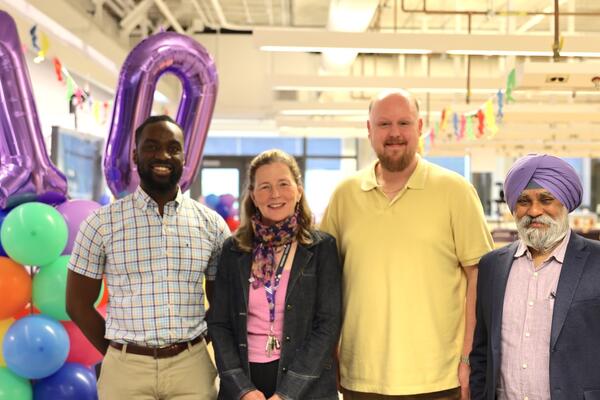
Read more
The Pearl Sullivan Engineering IDEAs Clinic marks a decade of delivering experiential learning embedded in the real world and mentored by industry professionals
The University of Waterloo acknowledges that much of our work takes place on the traditional territory of the Neutral, Anishinaabeg, and Haudenosaunee peoples. Our main campus is situated on the Haldimand Tract, the land granted to the Six Nations that includes six miles on each side of the Grand River. Our active work toward reconciliation takes place across our campuses through research, learning, teaching, and community building, and is co-ordinated within the Office of Indigenous Relations.